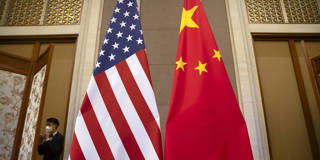Since the 1990s, Western companies have invested a fortune in the Chinese economy, and tens of thousands of Chinese students have studied in US and European universities or worked in Western companies. None of this made China more democratic, and now it is heading toward an economic showdown with the US.
WASHINGTON, DC/BERKELEY/KYIV – On his recent visit to the United States, Chinese President Xi Jinping encouraged American companies to regard his country as a close trading partner. In fact, US companies should be seeking to move their supply chains and other business away from China – while they still have the time. Through its deliberate and repeated actions, China is heading for an economic showdown with the US.

WASHINGTON, DC/BERKELEY/KYIV – On his recent visit to the United States, Chinese President Xi Jinping encouraged American companies to regard his country as a close trading partner. In fact, US companies should be seeking to move their supply chains and other business away from China – while they still have the time. Through its deliberate and repeated actions, China is heading for an economic showdown with the US.